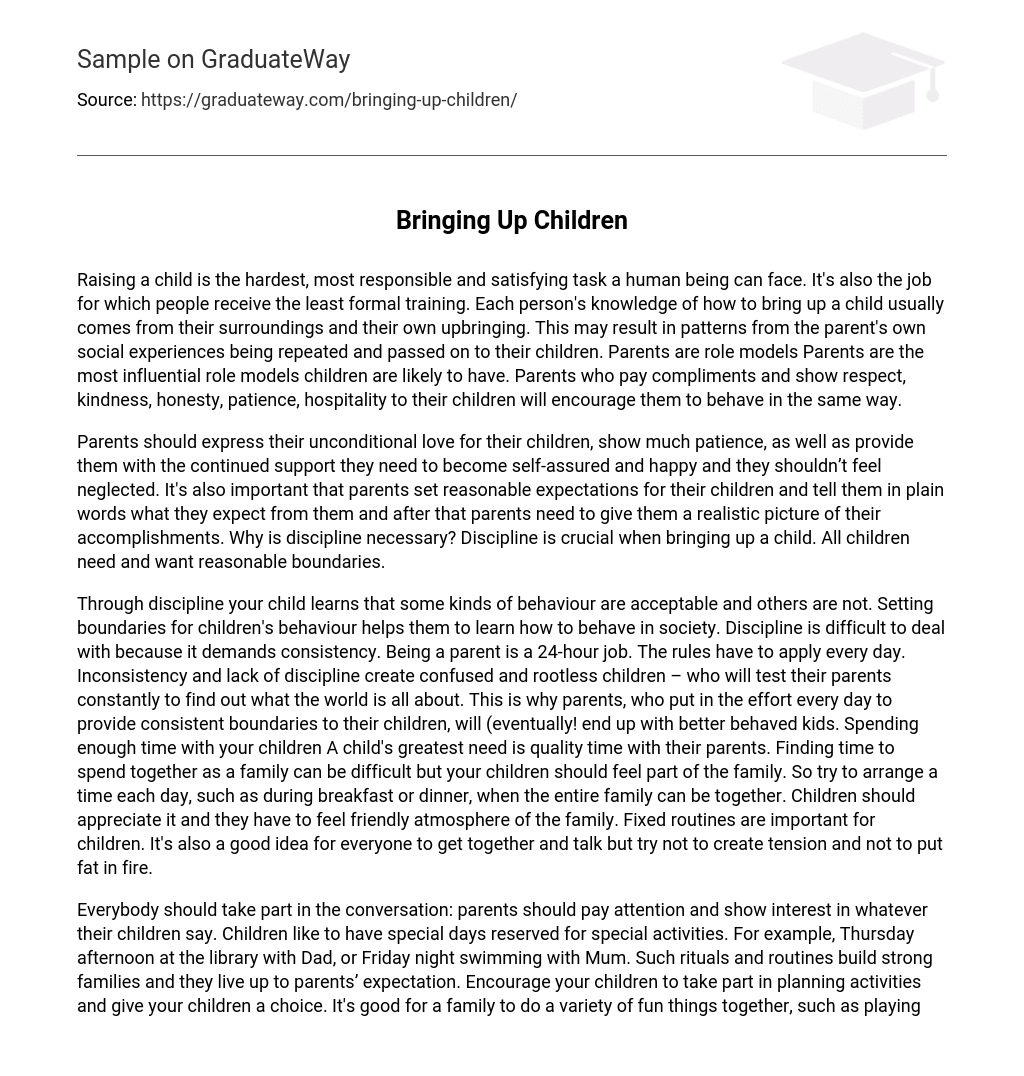Raising a child is the hardest, most responsible and satisfying task a human being can face. It’s also the job for which people receive the least formal training. Each person’s knowledge of how to bring up a child usually comes from their surroundings and their own upbringing. This may result in patterns from the parent’s own social experiences being repeated and passed on to their children. Parents are role models Parents are the most influential role models children are likely to have. Parents who pay compliments and show respect, kindness, honesty, patience, hospitality to their children will encourage them to behave in the same way.
Parents should express their unconditional love for their children, show much patience, as well as provide them with the continued support they need to become self-assured and happy and they shouldn’t feel neglected. It’s also important that parents set reasonable expectations for their children and tell them in plain words what they expect from them and after that parents need to give them a realistic picture of their accomplishments. Why is discipline necessary? Discipline is crucial when bringing up a child. All children need and want reasonable boundaries.
Through discipline your child learns that some kinds of behaviour are acceptable and others are not. Setting boundaries for children’s behaviour helps them to learn how to behave in society. Discipline is difficult to deal with because it demands consistency. Being a parent is a 24-hour job. The rules have to apply every day. Inconsistency and lack of discipline create confused and rootless children – who will test their parents constantly to find out what the world is all about. This is why parents, who put in the effort every day to provide consistent boundaries to their children, will (eventually! end up with better behaved kids. Spending enough time with your children A child’s greatest need is quality time with their parents. Finding time to spend together as a family can be difficult but your children should feel part of the family. So try to arrange a time each day, such as during breakfast or dinner, when the entire family can be together. Children should appreciate it and they have to feel friendly atmosphere of the family. Fixed routines are important for children. It’s also a good idea for everyone to get together and talk but try not to create tension and not to put fat in fire.
Everybody should take part in the conversation: parents should pay attention and show interest in whatever their children say. Children like to have special days reserved for special activities. For example, Thursday afternoon at the library with Dad, or Friday night swimming with Mum. Such rituals and routines build strong families and they live up to parents’ expectation. Encourage your children to take part in planning activities and give your children a choice. It’s good for a family to do a variety of fun things together, such as playing games and going to the movies or concerts.
What will good communication teach children? Offering explanations will help children work matters out for themselves. Take time to point out how things are connected, for example, in terms of cause and effect. Parents, who think out loud with their children, will see them develop a similar train of thought. They will learn to talk and think in a more sophisticated way. If parents express emotions and feelings, their children will learn it’s okay to do the same. When your children want to talk or ask questions, encourage them.
If you’re dismissive, or always say you’re too busy, they may express frustration and stop wanting to share their thoughts and feelings. If the family has a problem that concerns your child, involve them in the discussion. Try to find possible solutions together with him or her. When discussing options, also talk about consequences. The possible outcome will influence your final decision. Be open to the child’s suggestions. Let them take part in the negotiations and the decision. A child who experiences this kind of communication will become confident and learn the rules of good communication.





